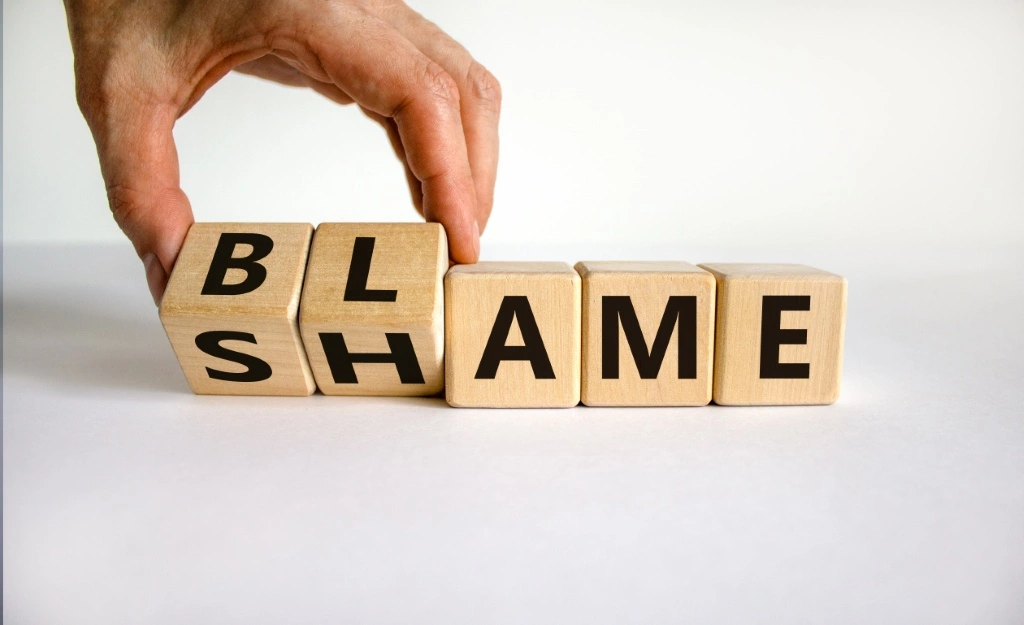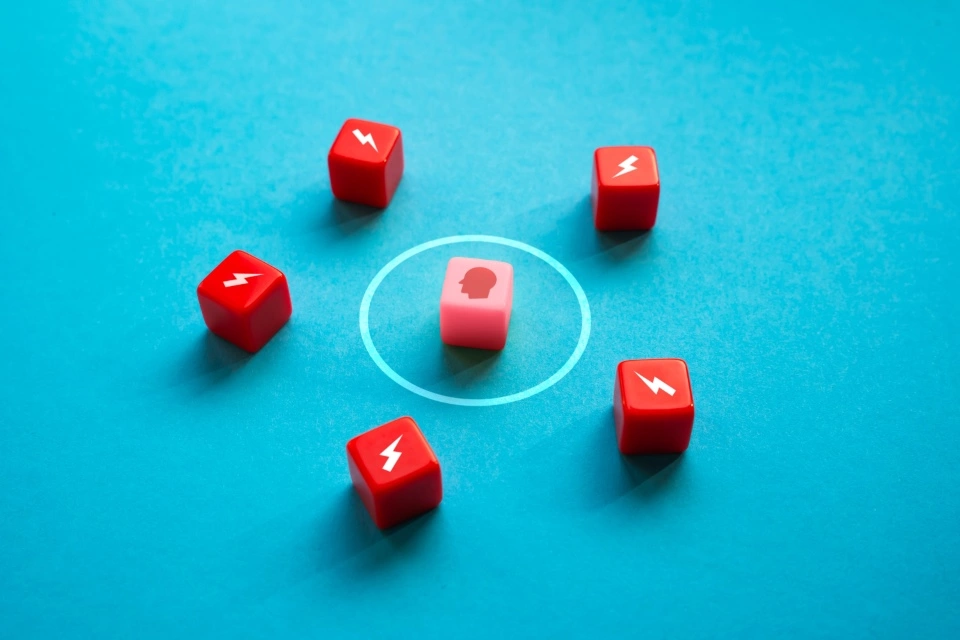Recognizing why people struggling with addiction may direct blame towards others is vital for everyone involved. This behavior often stems from a place of pain and defensiveness, and it can be particularly challenging for families who feel the sting of these accusations. Often, the journey into addiction doesn’t start as a conscious choice, but as an instinctive attempt to manage life’s overwhelming challenges.
This could stem from various factors such as adverse childhood experiences (ACEs), academic or work-related pressures, undiagnosed mental health issues, exposure to domestic violence, unresolved grief, traumatic events, or chronic physical pain. In these situations, substances initially serve as a self-medicated remedy, offering temporary relief from intense emotions and circumstances. Initially, these substances might seem like a lifeline, helping to alleviate distressing feelings and situations. However, this temporary solution can tragically transform into a dependency.[1]
By understanding this aspect of addiction, we can approach our loved ones with greater empathy and support, opening pathways to healing and connection. It’s a delicate balance of acknowledging the hurt while striving to comprehend the underlying struggles of addiction, ultimately guiding us towards more compassionate recovery practices.
Why Do Addicted People Struggle to Recognize Their Problems?
People grappling with addiction often find themselves in a cycle of denial that hinders self-recognition of their own struggles. This denial is not just a conscious choice; it’s an insidious part of the addiction itself. When substance users blame external circumstances or other people, it allows them to bypass the discomfort of self-examination. This is also the first hint of how many many substance users are struggling to cope with life on life’s terms.
This behavior can create a barrier to the acknowledgment of their substance use and the need for change. The very nature of addiction can distort self-perception, making it challenging for individuals to see the reality of their situation.
What Change Are People Scared Of?
Change, particularly the move from addiction to recovery, often incites a deep-seated fear in people facing it. While we might blame external factors for our hesitation, the internal battle with fear can leave us conflicted. The prospect of relinquishing drug or alcohol dependencies, even when they are destructive, creates intimidating uncertainty. There’s comfort in the familiar, no matter how damaging, compared to the unknowns that sobriety might bring.
Fears commonly associated with this change include:
- Losing the coping mechanism and emotional crutch that substance use provides.
- Anxiety about facing the underlying emotional pain without the buffer of intoxication.
- Concern over altering personal relationships that were centered around substance use.[2]
- Apprehension around the responsibility of rebuilding a life and identity without dependency.
The path of sobriety is one of transformation, often requiring a complete overhaul of lifestyle, relationships, and self-perception. It’s a total shift that uncovers issues previously masked by addiction. Despite the challenges, the journey towards recovery opens up the possibility of a healthier, more stable future; however, it demands resilience and the willingness to embrace support systems.
Res.
[2] https://bmcwomenshealth.biomedcentral.com/articles/10.1186/s12905-020-00946-2

Why Do People Find Addiction Shameful?
Society’s judgment and personal disappointment heavily contribute to the shame associated with addiction. Even with increased understanding, the stigma remains, making those struggling with their dependency feel marginalized or branded. This stigma doesn’t just come from the outside; it also becomes a personal narrative, leading to deep-seated shame that hampers the pursuit of addiction treatment.[3] Support and understanding – two essential components that are required when breaking free from addiction – become eclipsed by the fear of being judged.
Additionally, people often beat themselves up over their substance-related behaviors and feel trapped in a cycle they can’t seem to escape, which erodes their self-esteem. The label of alcoholic or addict, terms frequently echoed in society’s discourse, can reinforce a sense of hopelessness and self-blame. To counteract this and open the doors to healing and recovery, it’s important to create a dialogue that replaces shame with encouragement.
Res.
[3] https://www.sciencedirect.com/science/article/pii/S0306460321001398
Understanding Guilt and Stigma
Guilt intertwined with societal stigma can create a persistent cycle that not only perpetuates addiction but also the tendency to blame others. When society casts a shadow over those with a substance or alcohol use disorder, it reinforces a narrative that isolates and shames them, making it harder for individuals to reach out for help. They may begin to internalize this stigma, feeling that they are at fault for their substance misuse and deserving of their circumstances. This stigma can lead to a destructive self-fulfilling prophecy, where the fear of condemnation becomes yet another hurdle in the already difficult path to recovery.
Additionally, when people blame someone else, they’re often projecting the guilt they feel onto those around them. This deflection can serve as a barrier to accepting personal responsibility as it temporarily eases the weight of guilt.
Exploring Crisis Mode Thinking in Addiction
In active addiction, people often find themselves trapped in crisis mode, where the urgency of now overshadows any thoughts of the future. It’s a survival mechanism that prioritizes immediate substance use to alleviate discomfort or pain and sidelines the harmful consequences that may follow. Within this mindset, assigning blame to external factors or others becomes a convenient outlet to sidestep personal accountability.
This blame reflex serves multiple purposes: it offers a shield against the painful introspection required in recovery as well as providing a strategy to avoid confronting the deep-seated issues that fuel the addiction. Moreover, it further entrenches addictive behaviors, creating an illusion that any actions are a direct result of someone else’s doing, not the user’s own choices. This misdirected blame is a barrier that must be dismantled for healing to commence and is a cornerstone of successful recovery.
What Is Fear of Rehabilitation?
The journey to overcome addiction often leads to rehabilitation, a process that inherently stirs up fears. Individuals facing rehab might dread:
- The thought of group therapy and sharing personal struggles with strangers.
- The required vulnerability to unearth and confront deep-seated issues.
- The discomfort of being away from home and navigating a new, sober environment.
- The challenge of forging new relationships without the crutch of drug and alcohol use.
Despite these fears, rehabilitation is structured to be a stepping stone for recovery. Group therapy becomes a space for solidarity and understanding, and vulnerability turns into a catalyst for true healing. Distance from home provides a new vantage point to see one’s life, and sober relationships blossom into deep, authentic connections.
Within the supportive framework of rehab, individuals can find the tools to address their substance use, establish new patterns, and step into a life defined by renewed purpose and connections.

Blaming Others as a Psychological Defense in Substance Use Disorder
With substance use disorder, casting blame on external factors or other people often acts as a psychological shield. This defense mechanism, though counterproductive, is a human response to the distress and vulnerability one experiences in addiction. It’s a way to deflect the hurt and to avoid the stark glare of self-scrutiny. While it’s easy to view this blame as mere denial or stubbornness, it’s often a sign of deeper psychological turmoil.
With this in mind, it’s important to offer a compassionate response. Addressing blame with empathy can open a dialogue that shifts the focus away from assigning fault to exploring the root causes of the substance use disorder.[4] Through supportive interactions, the tendency to blame away responsibility can be replaced with a sense of personal empowerment and accountability. This empathetic approach acknowledges the pain without enabling the destructive cycle of blame.
Res.
[4] https://link.springer.com/article/10.1007/s12152-017-9307-x
How Blame Can Be Harmful
Blame can silently erode the foundations of relationships and personal development, particularly when dealing with drug or alcohol addiction. By constantly shifting blame onto others, people may create rifts with loved ones and obstruct the path to self-improvement. This tendency to blame everyone else can lead to a state of stagnation, where personal accountability is lost, and opportunities for growth are overlooked.
When people become entrenched in blame, they often miss the chance to confront the root causes of their addiction, which delays progress and deepens the emotional divide between themselves and those willing to support them. Reducing this blame is essential for creating a supportive atmosphere that nurtures recovery and reconnection.
Find Help at Crossroads Antigua
At Crossroads Antigua, we recognize the important role families play in the journey to recovery. Our specialized 5-day Family Program, available both in-person and virtually, caters to families dealing with the impact of addiction. Designed to complement individual treatment, this program facilitates understanding, healing, and growth for the entire family unit. Whether as part of a comprehensive treatment plan or as a standalone intensive, our Family Program addresses the complexities of addiction in a supportive, inclusive environment.
Alongside this, we offer tailored treatments for individuals, integrating clinical and holistic therapies for a robust recovery foundation. Our continuum of care extends beyond initial treatment, encompassing aftercare support and alumni resources, ensuring long-term success. To learn more or to enroll in our Family Program, visit our website or call us on 1 (888) 452-0091.
Embrace a journey of personal and collective growth towards lasting wellness with Crossroads Antigua.


ufa007 says:
Awesome! Its genuinely remarkable post, I have got much clear idea regarding from this post